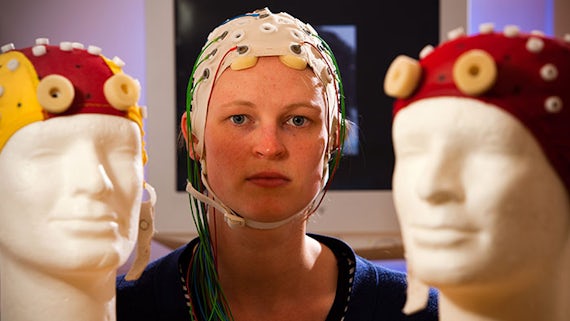Pioneering research-based app aims to support people not able to have the children they wish for
26 January 2021

A pioneering app has been developed by Cardiff University researchers to provide expert advice, information and step-by-step support for people not able to have the children they had hoped for.
MyJourney has been developed by the Fertility Studies Research Group at the School of Psychology and is thought to be the first easily accessible, research-based tool of its kind.
It is a free self-help interactive programme based on contextual cognitive behavioural therapy, which centres on acceptance and commitment therapy and mindfulness-based support.
The researchers said studies had indicated that people who are unable to fulfil their wish for children – regardless of the reason – can go through a grieving process and need the right support.
This support is more crucial than ever amid a pandemic that may have ended many people’s hopes of children through delayed or cancelled fertility treatments and financial or mental health stresses.
The researchers are asking men and women to sign up to take part in trialling the app so it can be fully evaluated and rolled out for free use from this summer.
“When people reach the end of their journey to have children and they’re not able to fulfil that wish they need time to adjust – and this can be really challenging,” said doctoral researcher Bethan Rowbottom, who devised and developed the intervention as part of her PhD.
“Our research suggests guided psychosocial support can help with this long-term adjustment and it may also encourage people to seek further support if they feel they need it.
“People who are struggling to have children already face huge barriers with waiting lists for treatment, difficulty in funding their journeys and enormous mental health pressures – and the current pandemic has added yet another barrier."
For many people 2020 may have been their last chance to have children so this support is needed now more than ever, particularly where it may not be available in person.
The app is based on extensive published research, with input from health professionals and people who could not have children, and is aimed at all people, regardless of gender or circumstance.
It invites users to take 10 steps over 10 weeks (or choose their own pace) to help develop skills to address several aspects of their unfulfilled wish. For example, one task involves ranking different values while another involves mindfulness. The more the user engages, the more tailored it is.
Dr Sofia Gameiro, who leads the research group, said: “Our research regularly identifies that people face various psychological challenges, such as grief, when dealing with an unfulfilled wish for children.
“Up until now, there was no easily accessible research-based intervention to support those who are coming to terms with this loss. MyJourney aims to plug this gap and provide user-friendly step-by-step support to help people to deal with difficult thoughts, feelings and situations; develop new insight into who they are and what they value and explore new pathways in life, looking towards a hopeful future.
“We are confident it will help more people come to terms with the fertility challenges they face.”
The Fertility Studies Research Group researches all aspects of fertility health to better understand the experiences of men and women trying to become parents, as well as of people who are not able to realise their hopes for children.
The app and was created in collaboration with two of the largest Portuguese and UK fertility charities, APFertilidade and Fertility Network UK. It is currently available in English and Portuguese – but the researchers expect it will eventually be available in all languages and cultures.
The tool is currently being evaluated in a randomised controlled trial – almost 150 people have taken part in the evaluation trial so far – but the researchers hope to recruit even more participants.
It is hoped the trial will be complete by the summer and from August MyJourney will be available to all for free. The app will then continue to be developed and updated even after it has been rolled out.
The app is funded by Cardiff University, the Portuguese Fertility Association and the Economic and Social Research Council. More information about how to sign up can be found here.
Share this story
We provide outstanding undergraduate and postgraduate teaching informed by our leading research in psychology and neuroscience.



